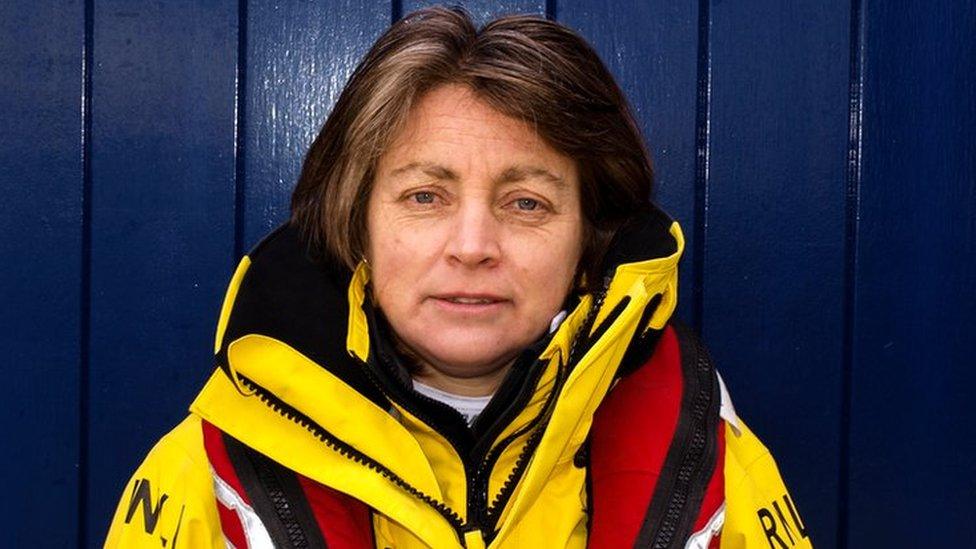Walton and Frinton lifeboat volunteers quit after manager departure
- Published
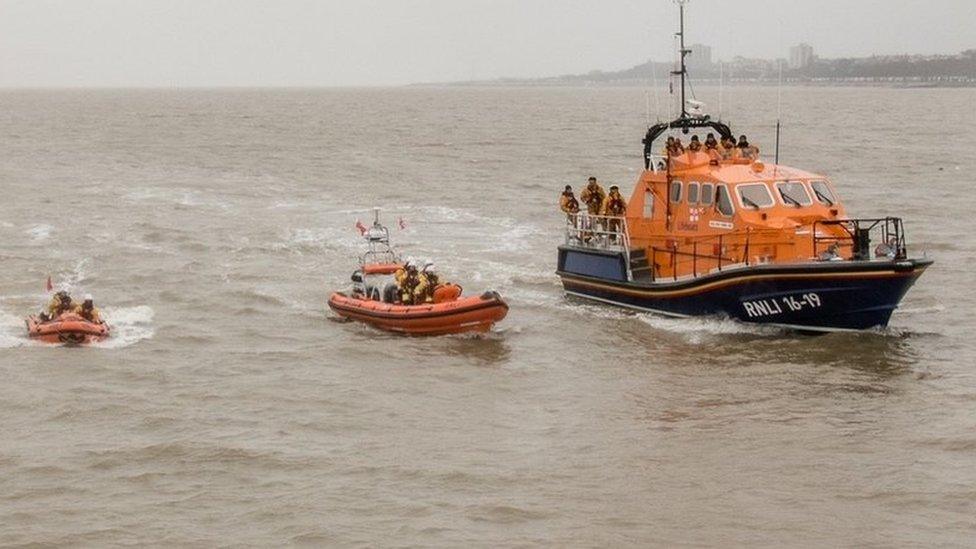
The RNLI is to swap the Walton and Frinton's larger lifeboat (far right) for the D-class boat (far left)
A lifeboat service in Essex has lost four of its crew after a volunteer manager was asked to quit by the RNLI over a "code of conduct" breach.
An internal review found Walton and Frinton lifeboat operations manager, Stewart Oxley, had breached the RNLI volunteers' code of conduct.
Mr Oxley, who had criticised a decision to introduce a smaller lifeboat to cover the area, refuted the finding.
The RNLI confirmed a volunteer had been "stood down".
"Their actions were found to have breached the RNLI's volunteer code of conduct and the standard operating procedure," said a spokesperson.
Four other crew members have since retired.
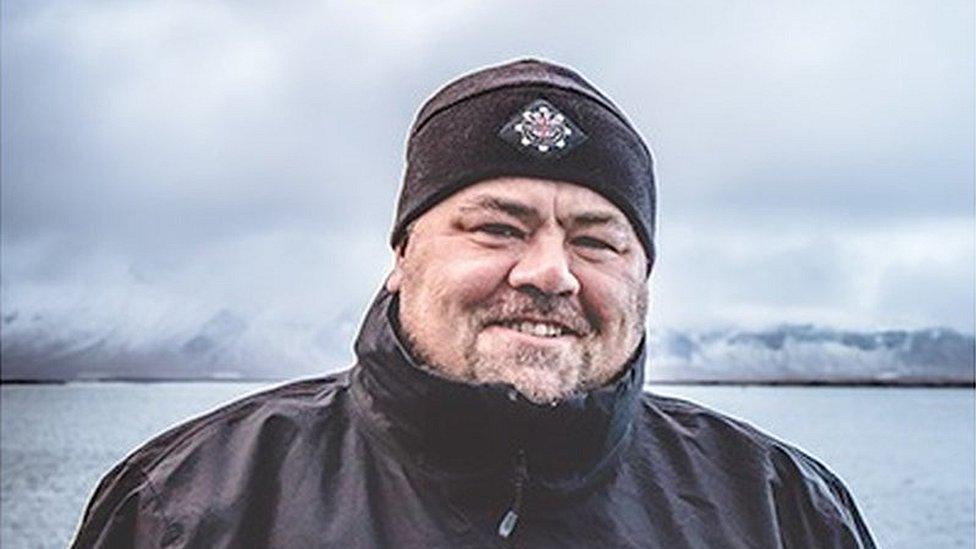
Stewart Oxley, a critic of the RNLI new rescue vessel, was asked to quit over a health and safety breach
Mr Oxley said he had no right of appeal the RNLI's finding that he breached safety rules during a rescue in April.
The RNLI plans to swap the station's larger all-weather boat for a smaller D-class inflatable vessel in autumn 2024.
John Hale, 63, who had been with the Walton and Frinton RNLI lifeboat service since 2008, said he was one of the four crew members, external who retired "in support" of Mr Oxley.
"Stewart was very vocal and quite public in trying to convince them that we think it's a dangerous downgrade," he said.
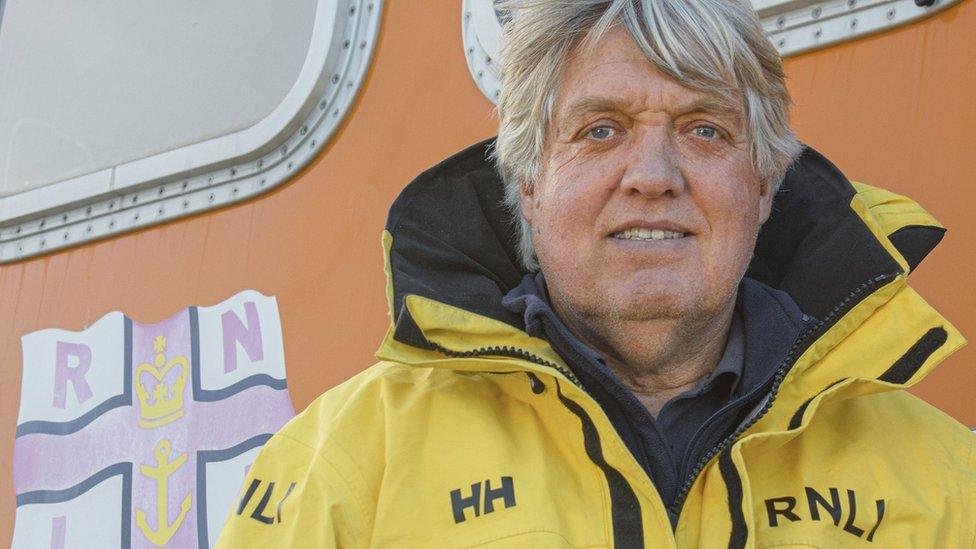
John Hale, a Walton and Frinton volunteer for 14 years, has retired from the role
The present lifeboat is 16m (52ft) long and can go out in any weather. It was being replaced by a five-metre (16ft) inflatable dinghy.
"To think, when all other stations are busy, the D-class is going to be an effective lifesaving asset here is absolute nonsense and dangerous in our view," Mr Hale said.
Nine volunteer crew members remain in post at the Walton and Frinton service, all of whom met on Monday to discuss "how to move forwards".
Second coxswain, Simon Berry, confirmed a lifeboat crew would be operational for the weekend.
Pier issues
"We think we can keep maintaining a sustainable crew for the boat," said Mr Berry.
Ross Barraclough, RNLI head of region north and east, said the change of vessel was due to "infrastructure issues" with Walton Pier, where the current all-weather vessel is launched from.
"The D-class is designed to operate close to shore in shallow waters and is also an ideal lifeboat to tackle challenging rescues along this part of the Tendring coastline," he said.
"It's an incredible boat and has saved over 1,000 lives across the RNLI."
Having a D-Class lifeboat at Walton and Frinton and an all-weather lifeboat at Clacton improved the life-saving effect for the whole stretch of coast, he said.

Follow East of England news on Facebook, external, Instagram, external and Twitter, external. Got a story? Email eastofenglandnews@bbc.co.uk, external or WhatsApp us on 0800 169 1830
Related topics
- Published17 June 2023
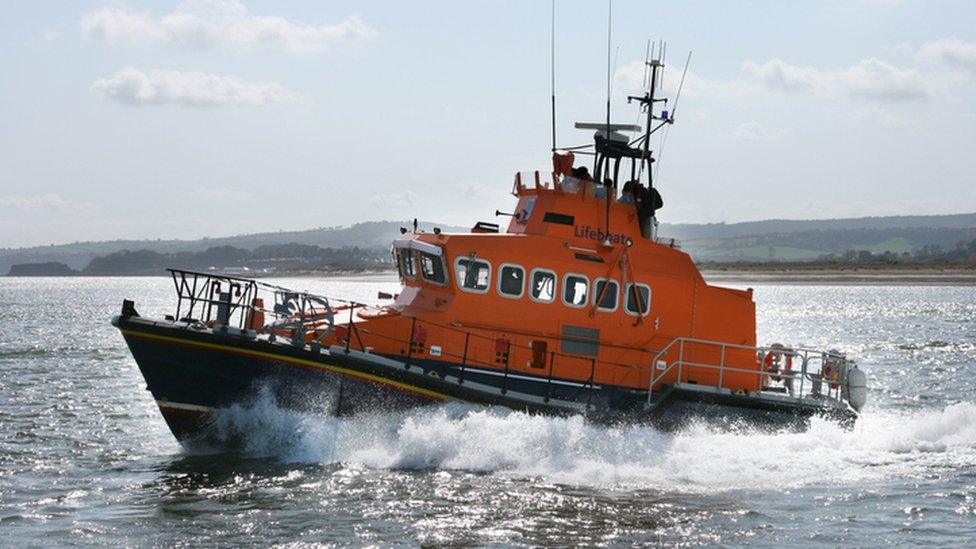
- Published10 August 2021
